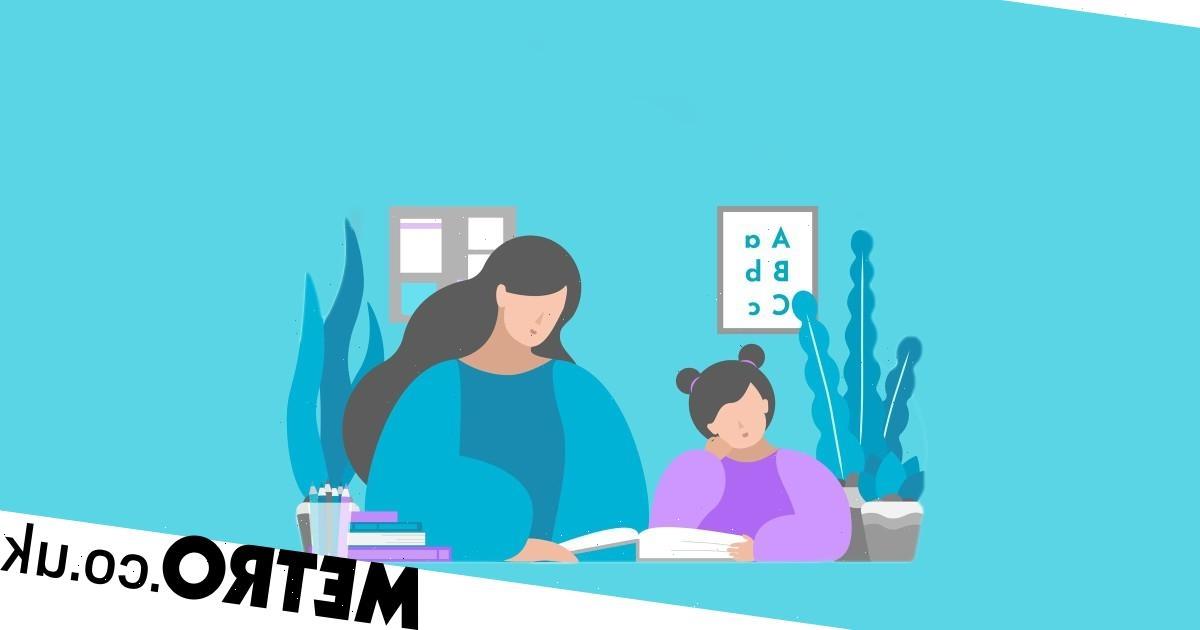Today marks the start of Dyslexia Awareness Week – an annual event aimed at understanding and raising awareness of the learning difficulty.
It’s particularly important too, considering around one in every 10 people in the UK has some degree of dyslexia – and it’s something that affects both children and adults.
Some parents notice dyslexia when a child starts school – typically when they struggle with spelling, or put letters and numbers in the wrong order.
But what are the key signs to look out for? And how do you support a child following a diagnosis?
To mark World Dyslexia Day, we’ve asked experts for their advice.
What are the signs that your child may have dyslexia?
Children’s psychologist Dr Alison McClymont tells Metro.co.uk: ‘Dyslexia is a misinterpreted condition by some, whereby people assume it is “reading letters back to front” or “having bad spelling”. It is not. It is a processing issue between the visual stimuli and the memory storage functions of the brain.
‘It is not a sign of intelligence or lack of – it is simply a brain that over works in some areas and as a result is “under-firing” in others.
‘Dyslexics will often struggle with retaining information if it is written – so if you hear your child saying they have to keep re-reading a sentence or they seem to struggle following or remembering a story, this is a potential dyslexia sign.
‘Others might be struggling with spelling, poorly organised sentences and in younger children having difficulty with sequenced instructions or copying written work.’
Dr Alison says you can approach the conversation with a child by asking a few searching questions, such as ‘do you find…’ and ‘do you notice..’ – but avoid overwhelming them.
She says: ‘Dyslexia still sadly has unnecessary stigma attached to it and your child might feel very uncomfortable initially by the questions. In the first instance observe your child reading/writing, ask the teacher, and then ask your child.
‘A good easy and informal entry is noticing any differences between the retention of verbal information and written – so does your child find it easy to follow a story if you tell it to them, rather than they read it?’
What else can you do if you think your child has dyslexia?
Dr Alison says it’s important that dyslexia is diagnosed by an educational psychologist – rather than parents themselves – as it can be a complex condition.
Education expert and former headteacher Leon Hady, who is the founder of Guide Plus, adds that it’s also crucial not to confuse dyslexia with anything else.
He tells Metro.co.uk: ‘First and foremost, having a sound understanding of what dyslexia is and the characteristics your child is exhibiting will help in being able to seek further support.
‘Noticing that your child may not be learning at the same rate as their sibling, or other children in the class, is only an indicator of them learning and developing skills at a different rate, and should not be confused with dyslexia.
‘Looking for patterns over time and writing down and compiling evidence of when, where and how your child has displayed these characteristics to share with your child’s school or an assessor will support in building the whole picture.’
What can parents do to support and help children after a dyslexia diagnosis?
Parents can also seek advice from teachers and the SEN department at school, as well as speech-language experts or educational psychologists.
There are also lots of resources parents can turn to for support following a diagnosis, including the British Dyslexia Association.
Do you have a story to share?
Get in touch by emailing [email protected].
Source: Read Full Article

